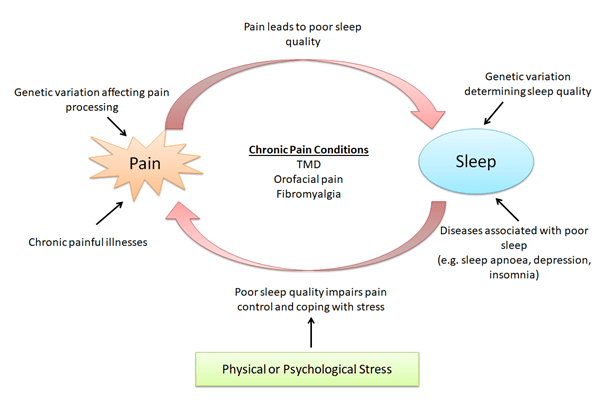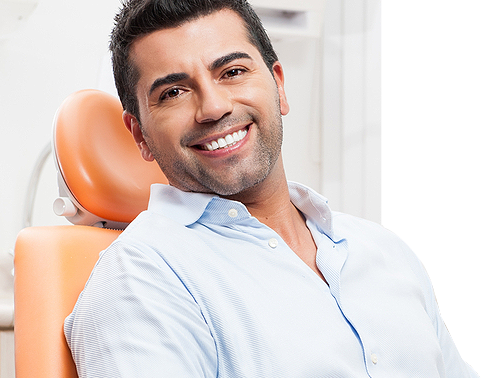What is the TMJ?
TMJ stands for temporomandibular joint. It is the jaw joint, formed by the mandible (lower jaw bone) joining the temporal bone of the skull, in front of the ear. Everyone has two TMJs, one on the left and one on the right. The TMJ complex has a cartilage disc inside of it. This disc sits between the mandible and the temporal bone, acting as a shock absorber protecting the bones from wear and tear. The TMJ moves through the coordinated action of muscles, ligaments and tendons, all working together.
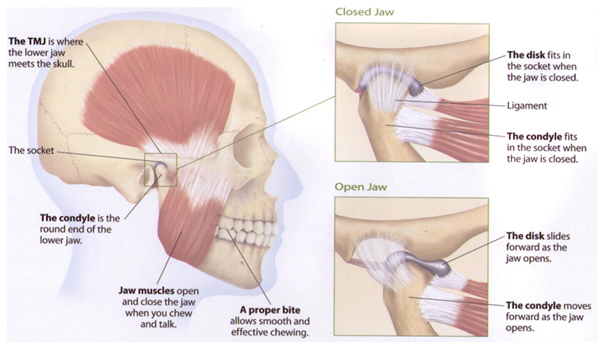
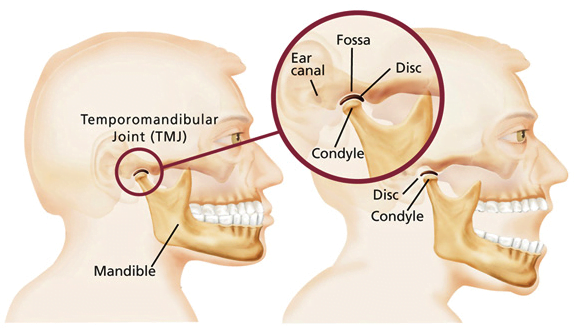
What is TMD?
TMD stands for Temporomandibular Disorder. It is disorders of the TMJ (jaw joint). Approximately 20-30% of the population has TMD. Symptoms for TMD include
- Headaches
- Migraines
- Jaw pain
- Back pain
- Neck pain
- Ear pain
- Tinnitus/difficulty hearing
- Difficulty opening the mouth
- Jaw clicking/locking
- Teeth grinding/clenching
- Poor sleep/fatigue
There are numerous causes for TMD, and quite often, people suffering from TMD will have multiple causes. The causes of TMD normally involve some form of damage or misalignment to the TMJ complex. This can cause the TMJ disc to displace (or dislocate), causing changes in muscle function and tonicity. This imbalance can then cause changes in the bite, which can then affect the head/neck muscles, ultimately leading to headaches and neck pain. Having TMD over a long period of time (i.e. over many months or years) can gradually degenerate the TMJ disc or bones making up the TMJ complex, leading to further pain and discomfort.
The latest research is also now revealing a close relationship between TMD and sleep related breathing disorders- such as snoring and sleep apnoea. A study from 2013 looking at over 4,000 patients found a “significant association between Obstructive Sleep Apnoea (OSA) symptoms and Temporomandibular Disorder (TMD).” A separate 2009 study found that roughly 75% of patients
with OSA have chronic pain related to TMD.
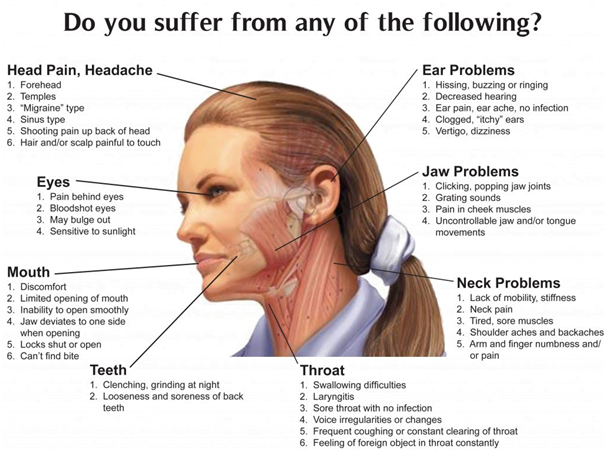
Management of TMD
TMD is a very complex craniofacial pain disorder, normally involving more than just the jaw joint itself. It is now understood that sleep related breathing disorders- such as snoring and sleep apnoea, can be associated with TMD. Pain research also shows us that people with poor sleep have more chronic pain. Sleep is an important biological process for our body’s survival and performance. People who have poor sleep or sleep deprivation have higher risks of:
- Chronic pain
- Increased sensitivity to pain
- Inability for the body to heal
- Increased risk for illness/disease
Because of the complexity of TMD, we first perform a comprehensive analysis to determine cause of the problem. This involves assessing your TMJ, head, neck, posture, airways, sleep habits, and daily routine. At Holistic Dental, TMD management may involve using a mouth orthotic. This is different to a conventional mouth splint or nightguard. Mouth orthotics are designed to allow the muscles to relax, decompress load off the TMJs, maintain ideal TMJ function, and thus reduce pain, clicking and locking. Treatment may involve working with a multi-disciplinary team. This may include referrals to health practitioners such as physiotherapists, sleep physicians and/or ear-nose-throat specialists.
Please watch the following video to learn more about the TMJ and airways.
